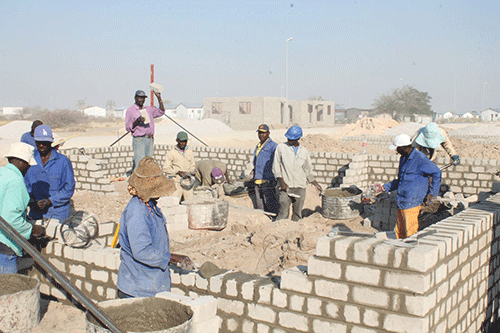In efforts to promote information-sharing between all key players in the housing industry, a construction and property exhibition has been organised to take place in Windhoek from 27 to 29 October 2022.
The event was initiated by Adventurous Construction and Property Exhibition, which was founded with a clear task to bridge the gap between potential property owners and property developers.
“The event will help local authorities to showcase property investment opportunities, and equally opportunities will be presented to the urban and rural development ministry to curb the mushrooming of illegal shacks in Namibia,” explained Edison Uapingene, chairperson of Adventurous Construction and Property Exhibition.
He noted that pressure on urban areas is becoming ever more drastic, as demonstrated by rapidly increasing urbanisation rates over the last decade. Concurrently, demand for affordable housing and land in cities, towns and settlements has exhausted supply.
Uapingene added: “We found this noble initiative as an opportunity to facilitate and co-ordinate all key players to find an amicable solution to housing problems, as well as to expose grey areas to potential investors and potential buyers of various types of properties (from low-cost housing to high-cost housing) countrywide”.
He said this is the best opportunity to address housing challenges such as rent control, the mushrooming of ghettos in various cities and towns, while an equal opportunity will be granted for academics to address the issue of urbanisation and
overcrowding.
Namibia’s urban population is expected to increase from 52% to 60% by 2030 as the country’s demand for formal housing is steadily increasing. For some developers, this situation offers a key economic opportunity.
Furthermore, the country is experiencing annual urbanisation of around 3.8%, translating to 50 000 people or 13 500 new urban households annually. This means Namibia needs more than 30 000 housing units annually to fight the escalating housing backlog being experienced.
All this was stated in the Namibia Country Private Sector Diagnostic (CPSD) report launched by the World Bank earlier this year.


